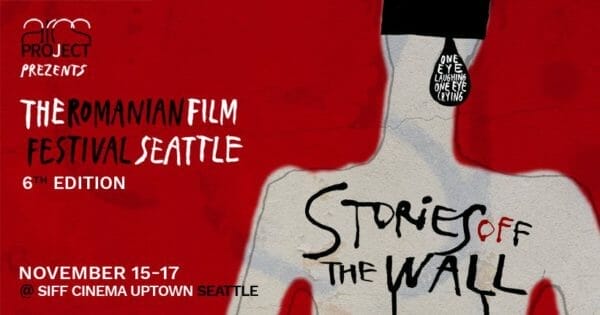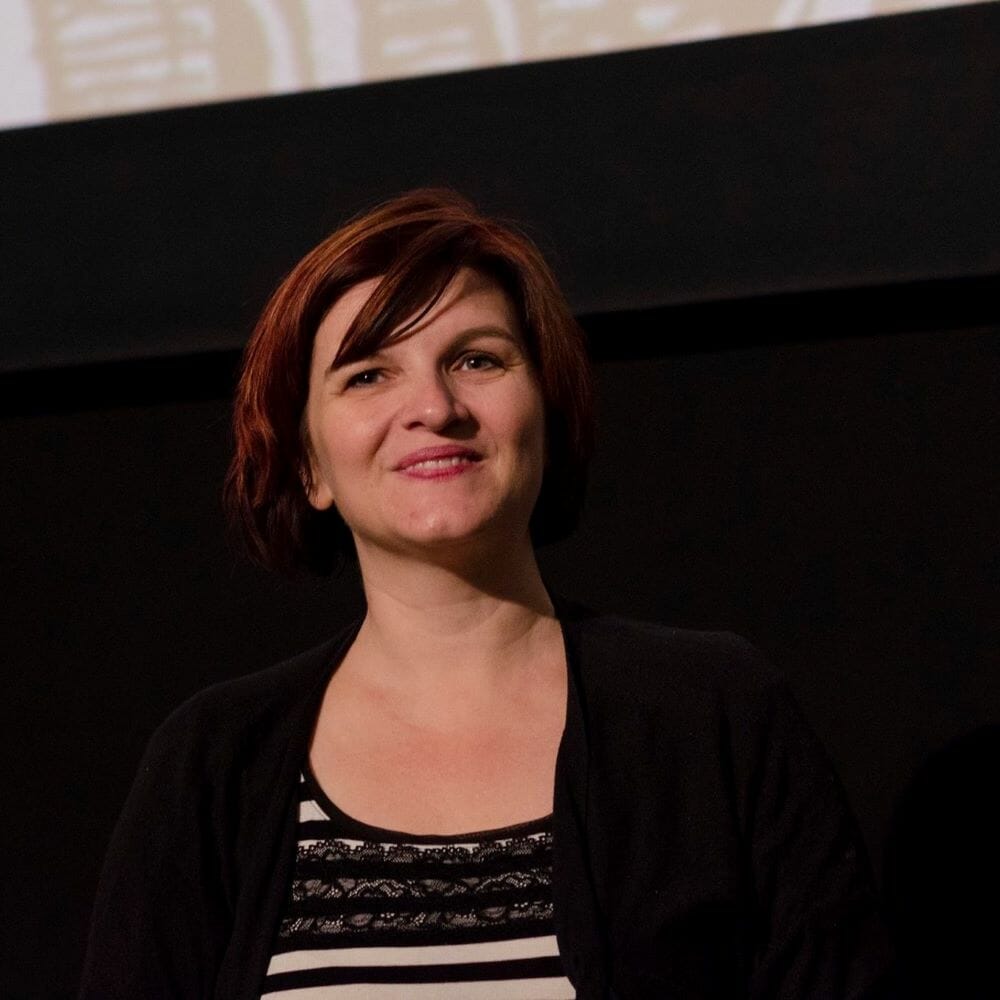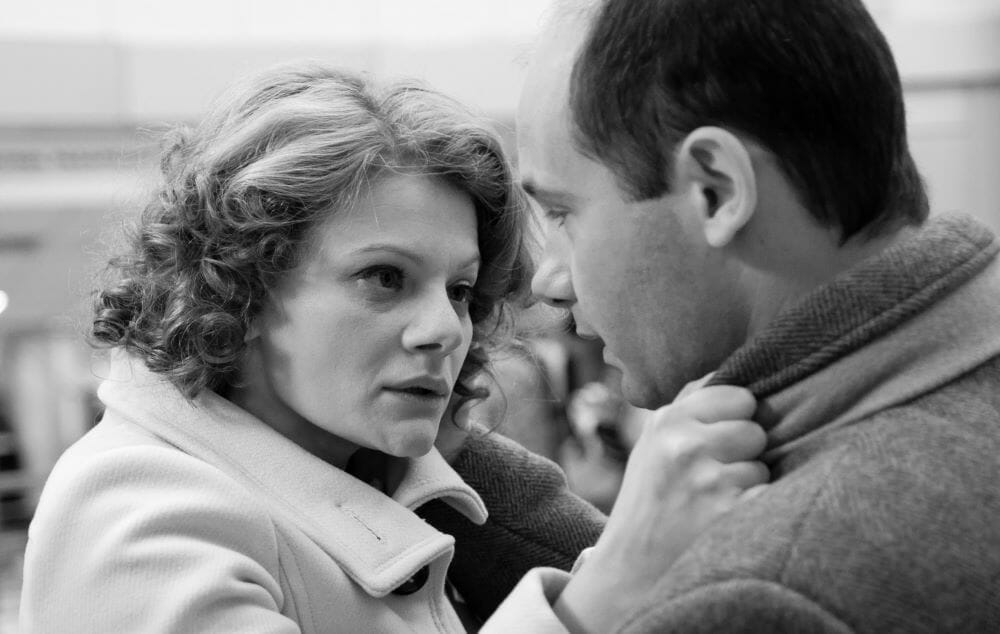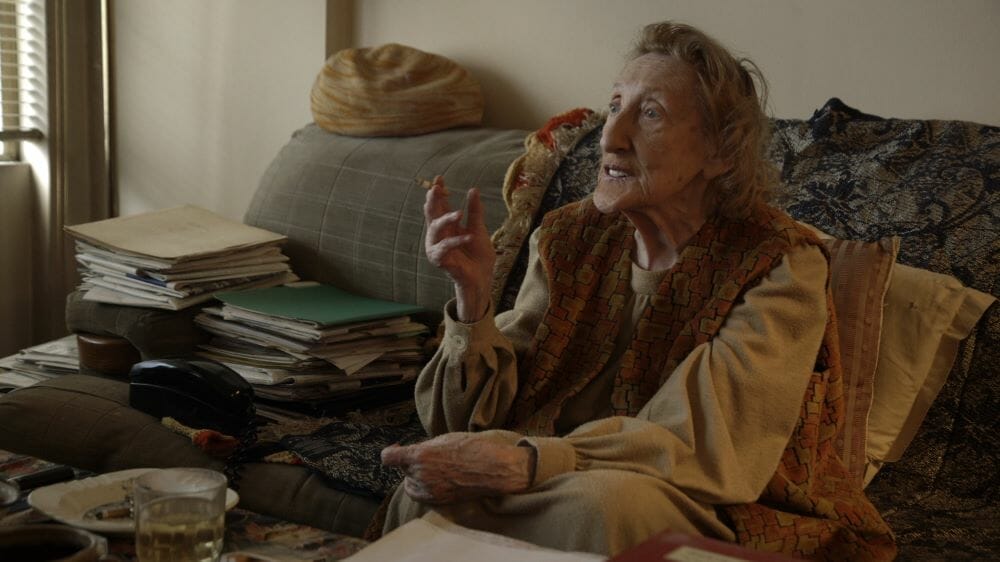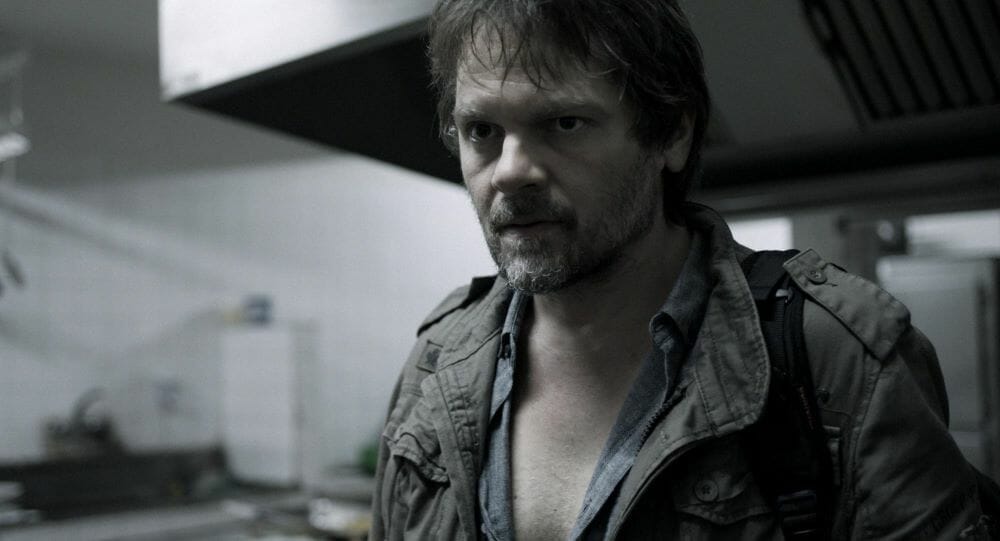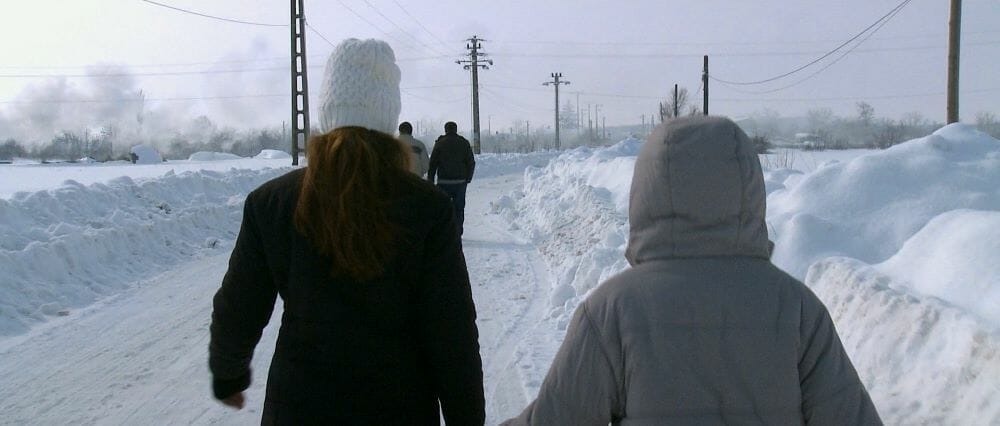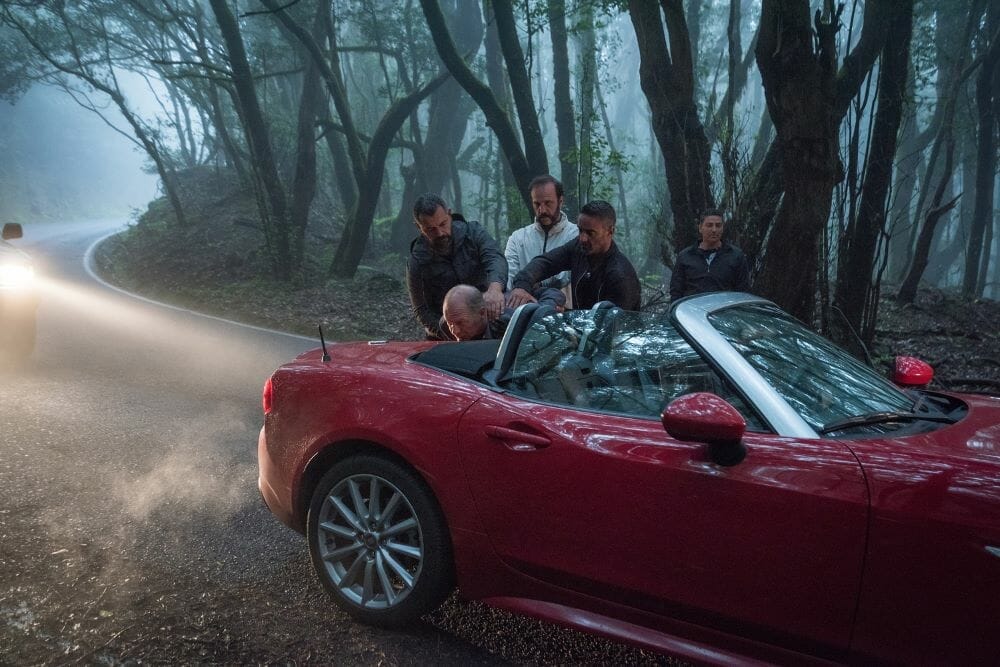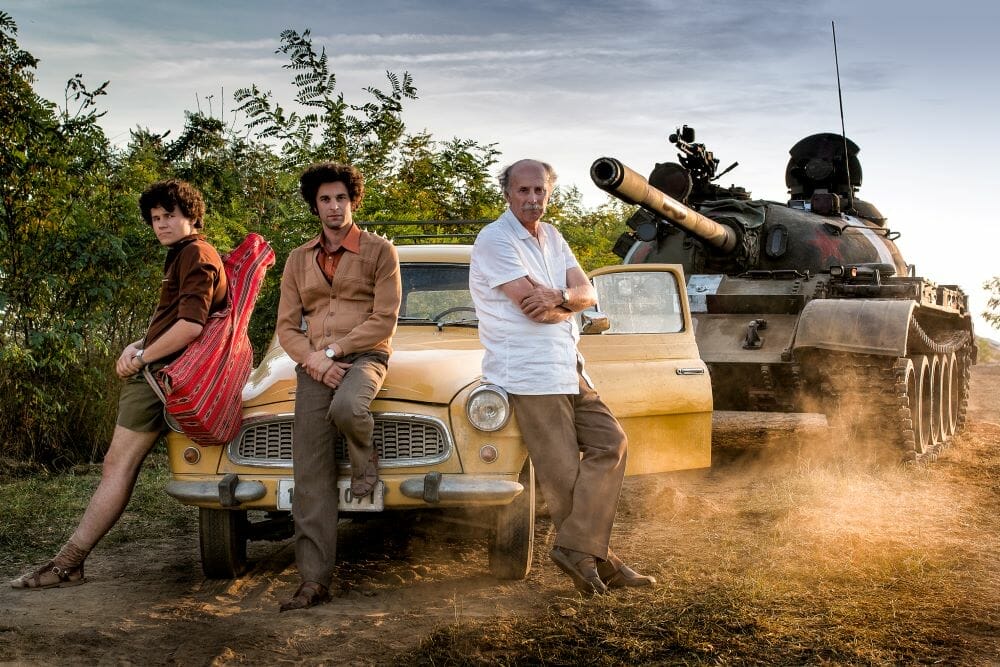When:
November 15 – 17
Where:
Seattle International Film Festival (SIFF) Cinema Uptown
This 6th edition of the Romanian Film Festival has the theme of One Eye Laughing, One Eye Crying: Stories OFF the Wall. Festival organizers explain that it hopes to “…bring Seattle audiences Romanian and Eastern European cinema echoing the political, economic and existential dilemmas that have reshaped Europe in the aftermath of the Cold War. Bounced OFF a wall that divided families, generations and nations, these stories harness the unifying power of film to create new bridges, in a universal quest for shared meaning.”
Festival Co-Founder Otilia Baraboi grew up in Romania, before moving to Seattle, where she is currently the Executive Director of the American Romanian Cultural Society. Here, Picture This Post (PTP) takes with Otilia Baraboi (OB) about her unique perspective on the possibilities and importance of cinema, and what the fall of the Berlin Wall meant to Romanian artists.
(PTP) Who usually comes to the festival?
(OB) Around 2,250 people attend the film festival each year. About 50% of our audience is of Romanian origin and lives on the Eastside, while the other 50% is formed by SIFF (Seattle International Film Festival) members, University of Washington students and faculty, and people who appreciate independent and international cinema in general, regardless of their cultural background.
How did the festival get started?
In the summer of 2013, after another edition of SIFF with no Romanian films, something had to be done to change the situation. By that time, Romanian films had gained international praise and prestigious awards and it was puzzling that in a city like Seattle, home to the largest film festival in the US, we didn’t have access to these productions. There was, and still is, much more to be done to make Romanian, and Eastern European culture in general, more visible in the Pacific Northwest.
Together with Ileana Marin, a colleague at the University of Washington, and Ioana Miron, who is a lawyer, we decided to form ARCS (American Romanian Cultural Society), as a non-profit set on the mission to promote Romanian culture, education and film in the Seattle area. Our first action was to contact Maryna Ajaja, who is a film programmer at SIFF covering Eastern Europe and Russia
Together we came up with the idea to start sponsoring Romanian films at SIFF in the summer, and then have our own film festival, hosted at SIFF, in the Fall. This was a great strategic plan to gain visibility and keep our audience engaged. Six years later, we are still following this plan, and it has been working very well for us. From one of the smallest venues at SIFF Film Center with 93 seats (in 2014), we have upgraded the festival to the largest auditoriums at SIFF Cinema Uptown with 272 seats (between 2015-2018). From about 750 viewers attending the first edition, we have been reaching approximately 2,250 people every year. We have succeeded in creating an authentic Seattle experience gathering people of all backgrounds.
Is there a large Romanian community in Seattle and what has the community’s response to the festival been like?
In Washington State there are around 20,000 people of Romanian descent, most of them living in the Eastside. I’m not sure how many of them live in Seattle, they are quite dispersed here.
Most Romanians love our annual film festival and are proud to support it. It is actually thanks to their private donations that this event has continued year after year, since 2014. Occasionally we get a few complaints about the grim reality that some of the films portray, or people who ask us to bring more comedies. When you leave your home country, it hurts to be reminded that some things are still not right over there. This being said, our Romanian audience is generally happy to have this opportunity to share their heritage and history with their non-Romanian friends, film being the only art that speaks cross-culturally.
How are films selected for the festival?
We select our films according to three criteria. First, the release year and the awards received, if any, are considered. We try, as much as possible, to bring the most recent productions, and preferably the ones selected by prestigious film festivals such as the ones at Cannes and Berlin. Second, we take into consideration the special guests who can represent them, because we want to create an authentic experience for our audience during the Q & A sessions and the events around the festival. It is wonderful and rare to be able to talk to a real person who either made the film or played in it; it enriches your perspective tremendously. When these two elements have been more or less identified, we decide on an encompassing theme that allows us to create a story around that particular edition, and include older films that can complement the most recent ones, offering a holistic view of Romanian cinema.
What should people expect to see at this year, the 6th Edition of the Festival, and what does the Off the Wall theme of this year’s festival refer to?
There are 22 films selected this year, all genres and styles are covered: shorts, documentaries, comedies, and dramas.
The Off The Wall theme is in honor of the 30th anniversary of the fall of the Berlin Wall. The Fall of the Berlin Wall happened on November 9, 1989, and it triggered the collapse of communism everywhere else in the Eastern Bloc. Romania is the only country where Ceaușescu’s totalitarian regime came down in violence, with the cost of human lives, almost a month later, in December. Around one thousand people died and three thousand were wounded during the Romanian Revolution of 1989. It was a heavy price to pay for democracy, considering that Romania is still fighting against corruption and the political class that took power.
How has filmmaking changed since the fall of the wall?
After the fall of the wall, Romanian, and Eastern European filmmakers in general, were able to create freely, outside of censorship. Although the Fall of the Berlin Wall was not efficient in dismantling the economic divide between Eastern Europe and the West, Romanian filmmakers used the scarcity of funds to their advantage, with such mastery that they turned it into an esthetic feature of New Romanian Cinema, notorious for its minimalism. This new aesthetic has proved to be very efficient in exploring the communist legacy, translating it for the large audience that has not necessarily experienced totalitarian regimes first-hand.
You were 14 years old when the wall came down. What effect did it have on your own life?
The Fall of Communism came at the right moment for me and my generation. I was old enough to understand what it means to live under an oppressive regime, but at the same time young enough not to be affected by it in irrevocable ways, like our parents, or even those ten years older than us, who had to deal with censorship and duplicity in their profession and daily lives. My generation was more judgmental towards this past and more intolerant towards the many shades of grey that kept Romania from reforming its politics, allowing old communists to take power after 1989. I was committed to change the society I was living in through civic engagement; I volunteered in an orphanage, I started to write articles and short fiction and even wrote a manifesto against the status quo with a group of friends. It was exhilarating to be able to express ourselves freely, unlike the previous generations, and we wanted changes and reforms fast.
Why is it important for you to share the film and arts of Romania with an American audience? How does film uniquely help you share your culture?
The Romanian community is fairly new in the area, unlike the Polish or the Russian ones that have been here since the beginning of the 20th century. Romanians started coming here in impressive numbers after 1989, to work mainly in the IT business. Because they were, in a way, pioneers, with everything to invent and built, their first reaction was to stay within the limits of the community and organize events only in Romanian. When we formed ARCS and the Romanian Film Festival in 2013, it was because we had a strong desire to share Romanian contemporary culture with our neighbors, colleagues and friends, just like all historic communities do in the US. Our focus was the future, our legacy anchored in our past, but not focused exclusively on it. Because we live in a city with a wonderful annual tradition established by SIFF, and because we knew that Romanian cinema was the best cultural product of the country after the fall of the Berlin Wall, we basically had no choice but initiate this project. The Romanian Film festival was bound to happen in Seattle, it's the perfect city for international cinema.
This year you have also programmed films from other Eastern European countries, including THE FATHER (Bulgaria), DONBASS (Ukraine), and short films from Moldova. Why was it important to you to expand your lineup to include these countries?
When I moved to the US and Seattle in 2000, I was surprised to find out how many things Romanians had in common with other Eastern Europeans besides its communist past. I know it may sound paradoxical, because from the outside we probably seem to form a compact group. During communism we were isolated; it was very difficult to travel even within the Eastern Bloc countries which meant that we did not know our neighbors. I had to come here to discover that many aspects of Romanian culture, such as food and ancestral pagan traditions linked to the end of the year or spring’s arrival, were in fact cherished by Bulgarians, Ukrainians, and Serbs. With the Moldovan community the situation is a bit different, because we share the Romanian language and we used to be a country before the Soviets annexed this territory. Besides these cultural links, we are connected historically, by the Fall of the Berlin Wall, just as Communism, instrumentalized by the Soviets, allowed the creation of the political anomaly called the Eastern Bloc. Our presence here, in Seattle, could not have been possible if the Wall had not come down. Celebrating the dismantling of the Berlin Wall, while others talk about building a wall in this country is a reminder that history repeats itself, if forgotten.
What would you like people to know about the Romanian people, and the diaspora in the United States?
This is a tricky, complex question … a book should be written about it. I guess I’ll just have to limit myself and say that Romanians in general are fun, creative, reliable, hardworking -- and they make great movies!
Read how filmmakers make their magic— in their own words. Read “FILMMAKERS SPOTLIGHT— Meet Filmmakers Picture This Post LOVES!” and watch this video for a story preview —
For more information visit the American Romanian Cultural Society website and the Romanian Film Festival website.
Photos courtesy of ROMANIAN FILM FESTIVAL 2019

